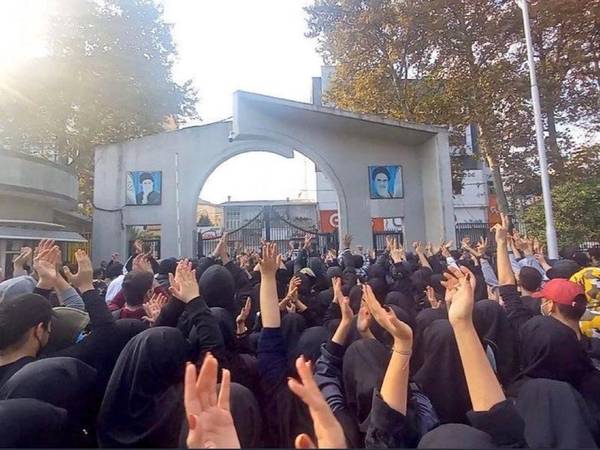Since the start of anti-regime protests in September 2022, the Iranian government has dismissed at least 52 dissident university professors.
Etemad, a notable reformist daily in Iran, released an article on Thursday outlining 52 professors who have been dismissed, forced into retirement, or barred from teaching. The article described this as the "second wave of professor removal in the name of purification" within the past year.
Earlier in August, the same daily published a list of 157 tenured professors who were terminated due to their criticism and dissenting viewpoints from 2006 to the end of August 2023. This extensive purge includes not only tenured faculty but also non-tenured lecturers who are being replaced by professors of a more "religious" and "revolutionary" nature.
Of the 157 previously announced names, 58 were removed during Ebrahim Raisi's administration. The recent article adds 52 more names, illustrating the continuing effort by hardliners to eliminate dissenting voices from academia.
The daily clarified, "It is important to note that these names do not constitute an exhaustive list of all the professors removed over these 17 years. Rather, they are the names that Etemad has been able to confirm."
Despite the academic year starting in less than a month, Etemad reports that the "distressing changes" within the educational system across 150 universities are ongoing.
The phenomenon of "political purification," as referred to in Iranian media, extends beyond universities. Regime hardliners are also removing their rivals from various other organizations and institutions. The term "purification" was coined by former Parliament Speaker Ali Larijani to describe the ultraconservative allies of President Raisi, aiming to consolidate government power by sidelining other politicians and officials.
This trend within academia began during Mahmoud Ahmadinejad's presidency and persisted through Hassan Rouhani's administration and President Ebrahim Raisi's term. Over these years, successive governments systematically expelled experienced professors for their "secular views" and other political reasons.
The second wave of purges, which emerged shortly after the protests of the Woman, Life, Freedom movement last September, has recently escalated with the support of senior officials.
While some officials attempted to portray the mass dismissals as unrelated to their support for nationwide protests sparked by the death of Mahsa Amini in police custody, many hardliner politicians openly endorse these actions and even call for harsher measures against the professors.
Notably, Hossein Shariatmadari, the hardline editor-in-chief of the Kayhan newspaper linked to Supreme Leader Ali Khamenei's office, endorsed the decision to terminate professors who had expressed solidarity with the protests. Shariatmadari deemed their dismissal as the "minimum punishment." He also welcomed the recruitment of ideologues for teaching roles, referring to Sharif University's invitation of three hardliner figures, including Amir-Hossein Sabeti, a television presenter, to teach Islamic subjects.
This university purges have elicited criticism from Iranians and disapproval from some regime insiders, like Iran's former nuclear chief Ali-Akbar Salehi, who also serves as the deputy head of the Academy of Sciences of the Islamic Republic of Iran. Salehi stated recently that the influx of unqualified academics replacing expelled professors would degrade the academic standard of universities, degrading their status.
According to some reports, President Raisi plans to introduce 15,000 "revolutionary" professors to academic faculties nationwide.
Top government officials, along with most university presidents and higher education officials, have refrained from acknowledging the political motivations behind the dismissals.
Hassan Khomeini, the grandson of Islamic Republic founder Ruhollah Khomeini, condemned the ongoing wave of dismissals as a "disturbing issue," warning of severe consequences if the independence of universities and students is compromised.
This policy, which seems to be part of a broader initiative to eliminate regime critics from universities and suppress student protests, has also resulted in announced delays in the start of the academic term in certain universities. Additionally, some universities might resort to online lectures to reduce the likelihood of campus protests on the first anniversary of the Women, Life, Freedom movement.
